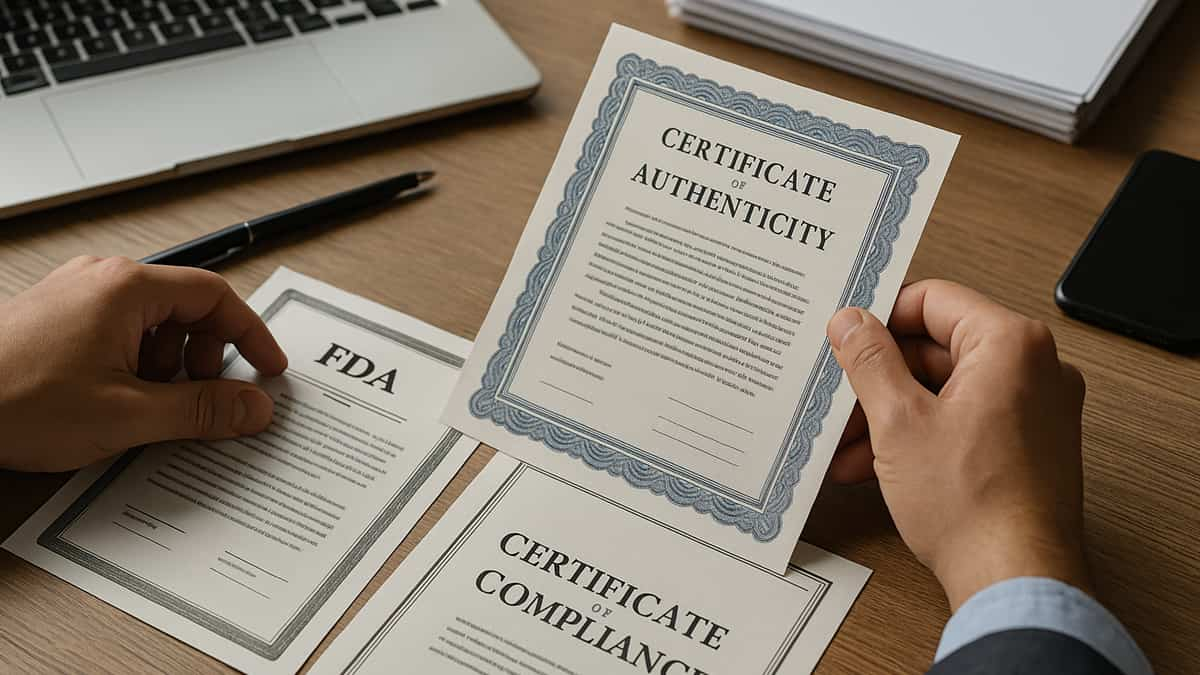When you start selling online, it is natural to focus on price, product selection, and whether a supplier can deliver on time. There is another step that deserves equal attention, asking for vendor compliance documents. These documents confirm that the products you plan to sell are authentic, safe, and approved for the market. Overlooking these documents can create avoidable problems later, so it is smart to make them part of your standard sourcing routine.
What Vendor Paperwork Includes
The specific paperwork varies by category, but the goal is the same, verified proof. Cosmetics and supplements often require FDA records. Electronics may call for safety certifications. Branded items should come with Certificates of Authenticity that show the products are genuine. When you ask for vendor compliance documents at the start, you collect the evidence you will need if a marketplace, processor, or customer asks for verification.
Why It Matters for Sellers
Trust is earned with clear proof, not assumptions. By requesting these documents before you buy, you protect your reputation and reduce the chance of product questions later. If you sell supplements, you want documentation that labels and claims meet the rules. If you offer brand-name electronics, you want Certificates of Authenticity on file. Keeping compliance docs organized lets you answer questions quickly and continue selling without interruption.
Platforms and Processors Expect Proof
Major marketplaces work hard to keep buyers safe, which is why they may ask for vendor compliance documents in regulated categories. Amazon, Walmart Marketplace, and eBay can request files for health and beauty, supplements, and electronics. Even if you sell on your own website, payment processors sometimes review listings and ask for vendor compliance documents before releasing funds. Having your documents ready helps prevent delays and keeps your accounts in good standing.
How to Request the Right Paperwork
Make the request part of your first conversation with every supplier. Be clear and specific about the documents you need. For brand-name goods, ask for Certificates of Authenticity. For cosmetics or supplements, request FDA documentation. For electronics, ask for safety test results and certifications. Experienced suppliers expect these questions. If a vendor avoids the topic or cannot provide vendor compliance documents, move on to a source that can. Reliable partners know that proper files protect everyone involved.
Make Compliance Part of Sourcing
Treat compliance documents the same way you treat pricing, lead times, and shipping terms. Add a simple step to your checklist, request, review, and file. Doing this early saves time later and sets a professional tone with suppliers. It also aligns with other smart habits many Worldwide Brands sellers use, such as negotiating order terms and testing small quantities first. When vendor compliance documents are standard for every product, you create a consistent process that scales.
Practical Tips for Staying Organized
Create a folder system by supplier and product line so you can locate vendor compliance documents in seconds. Store Certificates of Authenticity, FDA records, and safety files alongside invoices and product specs. Add reminder notes to request updates when formulas, packaging, or models change. Keep a short internal checklist that reads, “Quote, sample, vendor compliance documents, order.” The routine is simple, and it pays off every time a question comes up.
A Smarter Way to Grow
Successful sellers build solid foundations first. Asking for vendor compliance documents upfront is not a hurdle, it is a safeguard that supports long-term growth. You reassure buyers, you meet platform expectations, and you reduce risk. Most important, you set a professional standard for your brand and for your supplier relationships. When vendor compliance documents are part of your process from day one, you are not just listing products, you are building a business that can last.

